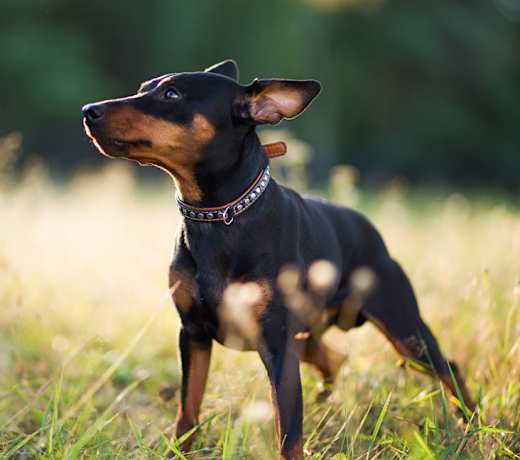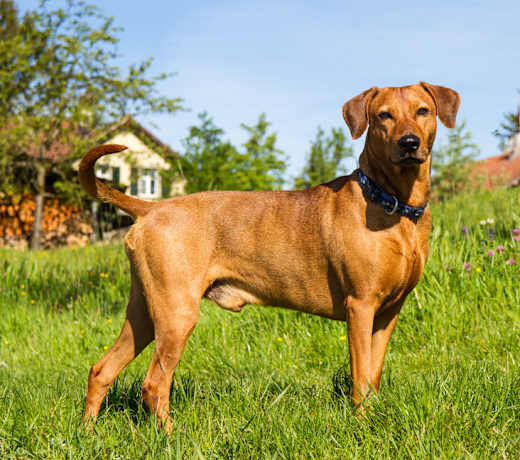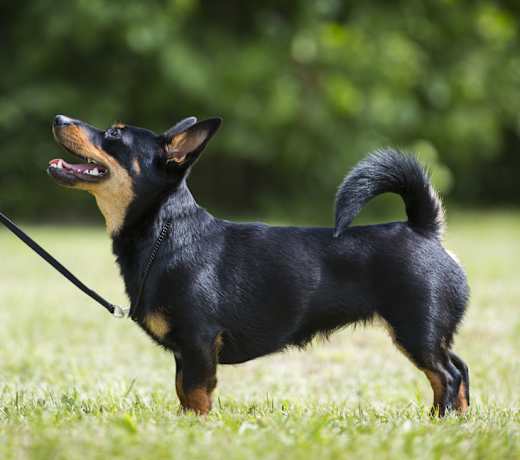Manchester Terriers typically reach their full size around 12 to 18 months of age. Their growth rate can vary slightly depending on factors such as genetics and diet, but by this time, they usually reach their adult height and weight. They may continue to fill out and develop muscle tone after reaching their full height.
Manchester Terrier
Breed Type: Toy
Common nicknames: Gentleman's Terrier
Coat: Smooth
Hypoallergenic: No, they will likely trigger allergies.
Temperament: Energetic, intelligent, independent, friendly
Life expectancy: 14-17 years
Color & patterns: Black and tan
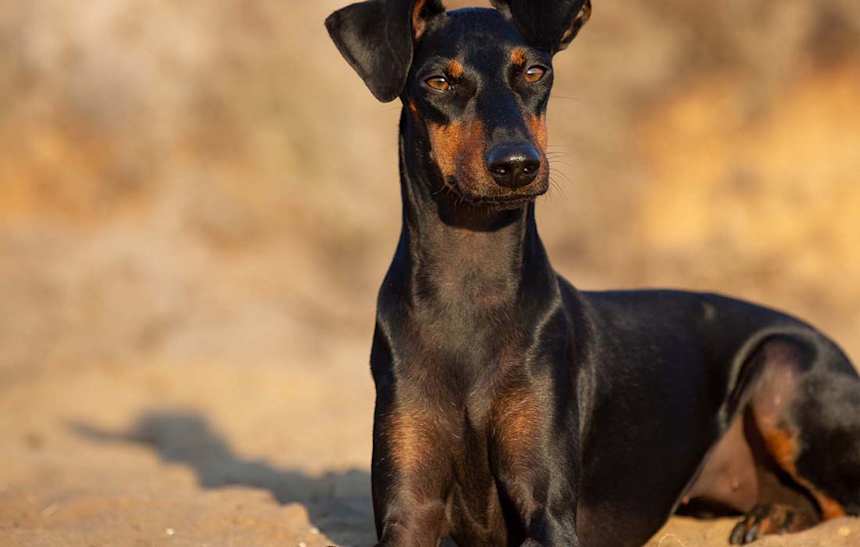
The Manchester Terrier is like a mischievous little detective with a sleek black coat and ears ready to perk up at the faintest sound of excitement. This spunky and cheeky breed comes in two varieties, the Toy and the Standard, but both share a contagious zest for life. With their small to medium sizes and slender builds, these lively companions are great for individuals and families alike. Manchester Terriers have a keen intelligence and natural athleticism, making them excel in activities like agility and obedience. They are also known for their loyalty and devotion, making them wonderful family pets. If you’re seeking a fast paced and affectionate pup, the Manchester Terrier might be the perfect choice.
Manchester Terrier characteristics
Learn about about Manchester Terrier basics like their fur colors, shedding levels, how much grooming they need, and other Manchester Terrier facts.
Average height
10-16 inches (25.4-40.6cm)
Average weight
4-25 pounds (1.8-11.3 kg)
Average lifespan
14-17 years
Exercise needs
Grooming needs
Full-grown size
Good with cats
Good with kids
Training aptitude
What colors do Manchester Terriers come in?
Manchester Terriers come in one main high-contrast color combination: black and tan. This breed can also be black, but that is not recognized as a breed standard color.
How big do Manchester Terriers get?
Manchester Terriers come in two sizes: Standard and Toy. Standard Manchester Terriers are 15 to 16 inches tall and weigh 12 to 22 pounds. Toy Manchester Terriers are 10 to 12 inches tall and weigh up to 12 pounds.
Do Manchester Terriers shed?
Yes, Manchester Terriers shed, though the amount is minimal. Regular brushing can help manage loose hair and keep their coat healthy. Their low-shedding coat makes them a good option for people who prefer a cleaner home with less hair around.
Manchester Terrier temperament
Learn about about the Manchester Terrier temperament and how well they fit into your lifestyle, home environment, and family.
Are Manchester Terriers good with kids?
Yes, Manchester Terriers are good with kids, especially older kids who know how to behave appropriately around dogs. Early socialization is crucial; pet parents should expose their dogs to children during their formative months if possible to help them adjust well to a family environment as well as kids generally.
As with any breed, supervise your child when interacting with your Manchester Terrier to keep both safe. Teaching children how to properly approach and handle dogs is crucial to ensure positive experiences for both the dog and the child, as is teaching dogs how to interact gently with children.
Are Manchester Terriers good with cats?
Yes, Manchester Terriers can be good with cats, especially those they were raised alongside. Like most terriers, though, they will chase cats they meet later in life due to their hunting background. Of course, each dog (and cat) has their own preferences and temperament, but with proper socialization and gradual, positive introductions, many Manchester Terriers can coexist peacefully with cats.
Are Manchester Terriers good with other dogs?
Yes, Manchester Terriers are good with other dogs, particularly if they are properly socialized from a young age. This breed is confident and sometimes assertive, so early socialization and positive experiences with other dogs are crucial to the development of their manners and social skills. While many Manchester Terriers can enjoy the company of other dogs and play well with others, their individual temperament and the dynamics of the introduction can influence their interactions. Regular, supervised playdates and consistent training can help foster positive relationships with other dogs.
Do Manchester Terriers bark a lot?
Yes, Manchester Terriers bark a lot. Like all terriers, Manchester Terriers are overly fond of the sound of their own voice. As with any dog, however, they can be discouraged from barking as frequently with proper training and exercise.
Are Manchester Terriers easy to train?
Yes, Manchester Terriers can be easy to train for an experienced and patient trainer due to their stubborn streak. For someone not equipped to manage their intelligence and independent mind, this breed can be a challenge to train. Also, keep in mind that even if a certain dog breed is known to be easy to train, training any dog requires a long-term commitment.
Are Manchester Terriers smart?
Yes, Manchester Terriers are smart dogs. They are intelligent, quick learners and often excel in training and problem-solving tasks. Their sharp minds and eagerness to please make them responsive to positive reinforcement and training.
Are Manchester Terriers friendly?
Yes, Manchester Terriers are friendly. Affectionate and loyal, this breed is typically energetic, playful, and eager to engage with their families. While they can be reserved with strangers, proper socialization can help them become more open and friendly in various social settings.
Are Manchester Terriers good family dogs?
Yes, Manchester Terriers are good family dogs, especially for an active family. They need daily exercise and love to run and play outside. Couch potatoes they are not. They do well with a family who can offer them the mental and physical engagement and care they need.
Manchester Terrier history
Learn about where the Manchester Terrier came from.
Is a Manchester Terrier a Doberman?
No, a Manchester Terrier is not a Doberman. While both breeds share some terrier traits, such as alertness and a strong prey drive, they differ significantly in size, appearance, and purpose.
The Manchester Terrier is small to medium-sized, with a sleek coat, alert demeanor, and energetic personality. It was developed in England primarily for ratting and small-game hunting.
The Doberman Pinscher is larger and more robust, with considerable strength, agility, and protective nature. It was developed in Germany in the early 20th century as a guard dog and police dog.
Where are Manchester Terriers from?
Manchester Terriers are from Manchester, England. Breeder John Hulme developed them in the 19th century by crossing Whippets with the Black-and-Tan Terrier. There are two types of Manchester Terriers: Standard and Toy varieties.
What were Manchester Terriers bred for?
Manchester Terriers were bred for ratting and as a small game hunting dog. Their sharp senses, agility, and tenacity made them excellent for controlling rodent populations. Over time, they were valued for their companionship and as show dogs, thanks to their sleek appearance and spirited personality.
How long do Manchester Terriers live?
Manchester Terriers live 15 to 17 years on average. Like all breeds, their longevity is influenced by factors such as genetics, overall health, diet, and quality of care. Regular veterinary check-ups and a healthy lifestyle can help them live a long, happy life.
What is the difference between a Min Pin and a Manchester Terrier?
While similar, the Miniature Pinscher (Min Pin) and the Manchester Terrier are distinct breeds with unique characteristics. The Manchester Terrier is slightly larger than the Min Pin, has longer legs, and is a bit more reserved and trainable than the Min Pin. Additionally, the Min Pin is from Germany, while the Manchester Terrier is from England.
Why are Manchester Terriers rare?
The Manchester Terrier is rare for several reasons. First, the breed’s popularity has fluctuated over time. As other breeds gained favor, the Manchester Terrier saw a decrease in numbers and recognition, impacting its visibility and availability. The two World Wars also had a significant and negative impact on many dog breeds, including the Manchester Terrier.
The Manchester Terrier’s specific traits, such as its size and high energy, might not be as broadly appealing as those of more versatile breeds, leading to a smaller, more niche market. Like many purebred dogs, Manchester Terriers can be prone to certain health issues, which may deter potential pet parents or breeders.
The breed’s rarity is partly due to the relatively small number of dedicated breeders. Maintaining a breed’s health and genetic diversity can be challenging with a smaller breeding pool. There is also competition from other, more versatile breeds with broader appeal or more widespread recognition.
Manchester Terrier health
Learn about about the Manchester Terrier health outlook and what diseases they may be prone to at various stages of their life.
Do Manchester Terriers have health problems?
Manchester Terriers are a relatively healthy breed with quite a long average lifespan. Around one-third die of old age, but some may be prone to health issues, including the following:
Eye issues: Glaucoma, a disease that causes excessive pressure on the eye, damages the optic nerve and eventually leads to vision loss and blindness; cataracts, a common eye condition that causes cloudiness in the eye and obstructs vision; and progressive retinal atrophy (PRA), a progressive degenerative disease affecting the retina that eventually leads to blindness, are all issues for this breed.
Patellar luxation: Also known as slipped kneecaps, patellar luxation is a common problem in many dog breeds. It occurs when slight abnormalities cause the knee joint to slide in and out of place. This can cause pain and occasional lameness. Surgical treatment is available for severe cases, although many dogs lead normal lives without treatment.
Legg-Calve-Perthes: This is a condition that causes the head of the femur (located in a dog’s hind leg) to spontaneously degenerate. Over time, this will lead to erosion of the hip joint and arthritis. A Manchester Terrier suffering from Legg-Calve-Perthes will become lame, limp while walking, and experience pain when moving the hip joint. Surgery is the most effective treatment for the disorder.
Von Willebrand’s disease: Von Willebrand’s disease (vWD) is the most common inherited bleeding disorder seen in dogs. It happens when a dog does not produce enough of a specific protein that helps the blood cells used in clotting stick together. This results in dogs who are unable to clot properly, which could cause hemorrhages or other bleeding issues. The deficient protein is called von Willebrand factor (vWF).
Hydrocephalus: This is a build-up of fluid in the brain that is most commonly seen in puppies under 18 months of age.
Hypothyroidism: This thyroid malfunction results in low hormone production and could cause obesity, low energy, and a brittle coat.
Cardiomyopathy: This heart condition causes an enlarged heart and may lead to heart failure.
Are Manchester Terriers hypoallergenic?
No, Manchester Terriers are not hypoallergenic. While they have a short, smooth coat that sheds minimally compared to some other breeds, they still produce dander, which can trigger allergies in sensitive individuals. No dog breed is completely hypoallergenic, but those with less shedding and lower dander production might be better for folks with allergies.
Can a Manchester Terrier be kept outside?
No, Manchester Terriers cannot be kept outside. Manchester Terriers are best kept as indoor pets. They are small, sleek dogs with short coats that do not provide much insulation against extreme weather conditions. They also thrive on companionship and interaction with their families; keeping them outside for extended periods can lead to loneliness, anxiety, and potential health issues. For their well-being, Manchester Terriers should be housed indoors where they can be folded into family activities, receive regular social interaction, and stay comfortable. They need regular exercise and mental stimulation, which is easier to provide in an indoor environment where they are closely integrated with their family.
Popular Manchester Terrier mixes
Some common Manchester Terrier mixes include:
Manchester Terrier Jack Russell (Manchester Terrier + Jack Russell Terrier)
Manchester Terrier Dachshund (Manchester Terrier + Dachshund)
Miniature Manchester (Manchester Terrier + Miniature Pinscher)
Manchester Beagle (Manchester Terrier + Beagle)
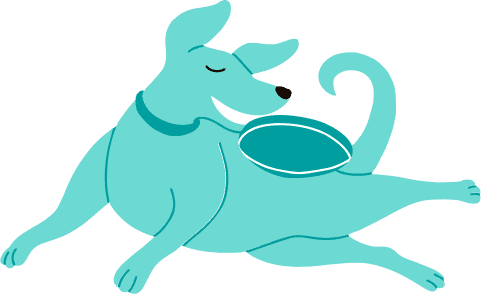
Find Manchester Terrier puppies near you
Adopting a Manchester Terrier
Learn about acquiring a Manchester Terrier - the pros and cons of adopting versus going through a breeder, and associated costs.
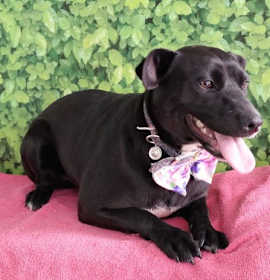
Brisa
Manchester Terrier Rat Terrier
Female, young
Los Angeles, CA
Good with dogs
Spayed or Neutered
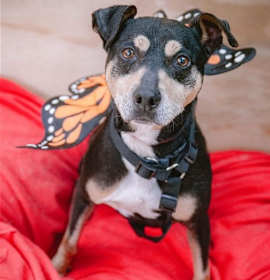
Zorrito
Manchester Terrier Rottweiler
Male, adult
Los Angeles, CA
Good with dogs
Spayed or Neutered
Shots are up-to-date

Brisa
Manchester Terrier Rat Terrier
Female, young
Los Angeles, CA
Good with dogs
Spayed or Neutered

Zorrito
Manchester Terrier Rottweiler
Male, adult
Los Angeles, CA
Good with dogs
Spayed or Neutered
Shots are up-to-date

